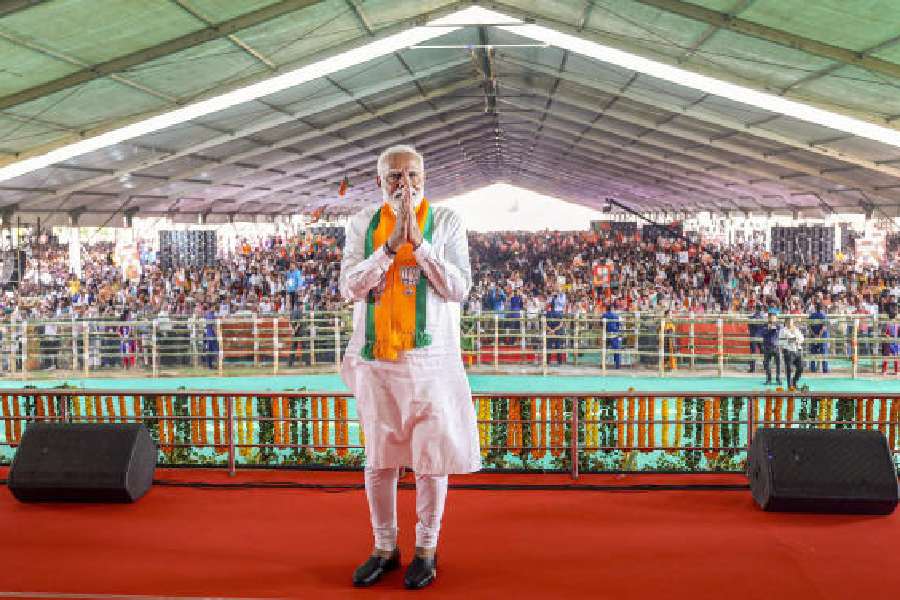Cultural icons — Bengal once had a surfeit of such luminaries — have an afterlife. Unfortunately, this afterlife often plays out in the field of competitive electoral politics. It is thus not surprising that the prime minister, Narendra Modi, chose to tug at Bengal’s heartstrings by visiting some famous addresses in the course of his roadshow in Calcutta on Tuesday: his pit stops included the residence of Sarada Devi, a signature statue of Subhas Chandra Bose as well as the dwelling of Swami Vivekananda, all of these located in the northern part of the city. The chosen route was undoubtedly meant to achieve a political end — ridding the Bharatiya Janata Party of the stubborn tag of an ‘outsider’ to Bengal’s cultural ethos and way of life. The BJP has worked hard to earn this epithet though. The vandalism of Ishwarchandra Vidyasagar’s bust during a roadshow by Amit Shah in 2019 along with its repeated howlers on Bengal’s icons — a quote suggesting that Rabindranath Tagore was born in Visva-Bharati was attributed to J.P. Nadda, the party president — among other faux pas, only cemented the perception that the BJP is separated from Bengal’s cultural sphere by miles. Mr Modi was attempting to bridge this chasm in a bid to prevent the Trinamool Congress from benefitting politically at the expense of the BJP’s ignorance. Incidentally, Mamata Banerjee walked the same stretch a day after Mr Modi in an act of curated political messaging.
Two important inferences, however, can be drawn on the basis of the politicians’ reverence for icons during poll season. First, the respect for luminaries cutting across political lines does not necessarily lead to the incorporation of the lofty values that were preached by these august men and women into India’s political life. On the contrary, the endeavour signals the politicisation, even unworthy appropriation, of important legacies. The BJP’s veneration of Bose — a formidable opponent of communal politics — is an example of such an act of (mis)appropriation. Second — this point is particularly relevant to Bengal — the centrality of icons to the political — electoral — process is not without reason. The contemporary mediocrity of Bengal’s socio-cultural life, an unenviable vacuity, has meant that the Bengali gaze is perpetually turned towards a past that had been made glorious by the icons. Politicians of all stripes are merely interested in earning electoral dividends by exploiting this public sentiment.











